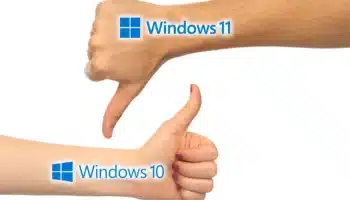Vonage Settles With Verizon, Will Pay At Least $80 Million
The cost of Vonage's VoIP technology development policy - build now, ask questions later - hardened a bit more after the close of stock trading this afternoon. Vonage has agreed to settle with the first of its three aggrieved parties, Verizon, in an unusual deal that hinges upon a forthcoming ruling from an appeals court and a separate injunction ruling from a district court.
Earlier this month, Vonage filed a motion with the DC Court of Appeals for a rehearing en banc (all three judges in session) of an earlier appeal of that court's Verizon decision, which Vonage had lost. That rehearing is a long shot (even more so now), so if the Appeals Court decides to deny Vonage's motion, it has agreed to pay Verizon $117.5 million. This after a jury had already awarded Verizon $58 million in damages, in a ruling which was partially remanded last month.
Microsoft Income Up 23% in Fiscal Q1 2008 on Skyrocketing Revenue
In early numbers from Microsoft prior to its quarterly financial results call to analysts this afternoon, the company reported revenue gains of 27% annually to $13.76 billion, and net income nicely higher by 23% annually to $4.29 billion, in what the company is calling its fastest first quarter of growth since 1999.
In the early afternoon statement, the company is crediting increased consumer demand for Windows Vista, primarily the Premium Edition, though analysts are likely to ask whether the Vista "sales mix" is actually weighted more toward pre-installations. The release of Halo 3 will also have played a factor, but certainly not to the tune of several billion more dollars in revenue in three months. All that means the company's stellar performer could turn out to be, once again...SQL Server, which has blossomed to becoming a principal profit center whose growth rivals its applications division.
Intel 300 mm, 45 nm Facility Opens in Arizona
The second of four production facilities for Intel's 45 nm semiconductors is now online, with the opening of the company's entirely new Fab 32 in Chandler, Arizona. Built specifically to use the company's breakthrough HK+MG manufacturing process that miniaturized the transistor all over again, Fab 32 represents the beginning of the big payoff of Intel's restructuring, establishing what it hopes to be a substantial and permanent "generation gap" between its CPUs and AMD's.
The building's million-plus square feet of space includes 184,000 square feet of dedicated clean room. By comparison, the company's D1D 45 nm facility in Oregon contains 176,000 square feet of clean room, and AMD's Fab 30 facility in Dresden, Germany is said to contain 120,000 square feet. There are two more 45 nm facilities under construction for Intel, including the colossal Fab 28 facility in Kiryat Gat, Israel, which will house over 200,000 square feet of clean room.
Vongo Video Downloads to Support More Media Center Devices
In response to what its parent company today called the top request voiced by its "passionate customer base," video download service Vongo announced today the 2.0 revision of its software, which now supports more Windows Media Center Extenders.
Vongo previously supported only two Windows Media Center 2 devices: the Toshiba Gigabeat S and V series. It has now more than tripled that lineup with the addition of the Archos 405 and 605WiFi, the Creative ZEN, the award-winning ZEN Vision: M, and ZEN Vision: W.
Samsung Cancels Blu-ray Player, Delays Dual-Mode Unit
Samsung confirmed Wednesday that it was canceling one of its Blu-ray players, while delaying its dual-format model until the end of the year.
The Blu-ray-only BD-P2400 was set to debut at a price point of $649 USD. However, the device was essentially the same as the $100 cheaper BD-P1400, save for the addition of HQV video processing.
Quandary: Is Windows Desktop Search Installing Itself?
At least two independent, private network administrators have reported on their blogs since yesterday that their Windows Server Update Service has downloaded and deployed to their network clients the most recent update to Microsoft's Windows Desktop Search engine, even though those services are set up not to deploy updated software automatically.
"Thank you Microsoft, for once again bypassing my Windows update policies," wrote admin Robert Kloosterhuis this morning. "I can now go explain to my managers why 500 workstations and 12 servers have ended up with Microsoft Desktop Search, without anyone's explicit approval."
Hackers Can Tap Into Vonage Lines, Says Security Firm
A security firm disclosed Wednesday that a security hole in Vonage's VoIP system could allow an attacker to reroute and effectively hijack phone calls.
"This leaves the Vonage customer subject to spam, social engineering vulnerabilities, and scams," reads a security advisory issued yesterday by Sipera Systems, a relatively unknown VoIP security firm out of Richardson, Texas. The company said it had alerted Vonage to the problem over a month ago, however it never received a response.
Rep. Boucher Asks Comcast to Stop Blocking BitTorrent
While Congresspeople have recently been quite vocal about their opposition to file sharing services, at least one has presented a contrarian view: Fair use promoter Rep. Rick Boucher (D - Va.) said in a CNET interview that Comcast should lay off BitTorrent.
"The inability of customers to (share files) significantly diminishes their ability to utilize the Internet for one of its most important applications, which is user-to-user content." Rep. Boucher told CNET, adding that Comcast's attempts at regulating Internet traffic were a mistake.
RIM Adds Facebook to Blackberry
Research In Motion Ltd. today launched its faster, more optimized Facebook application for Blackberry, at the CTIA Wireless IT and Entertainment show in San Francisco.
The application is non browser-based, giving the user access to all the site's "essential" features: uploading photos (applicable to the Pearl or Curve handsets), adding friends, poking, wall posting, and private messaging. All these actions are very quickly executed, according to Crackberry forum user postings, and only lag a few seconds behind the user's Facebook site.
Google Adds Its Voice to 700 MHz Gamesmanship
Following in the wake of Verizon and AT&T, whose chief executives have both made comments in the past seven days that were interpreted by analysts as either saying they would bid in the FCC's upcoming auction of the 700 MHz broadcast spectrum or would not bid - depending, one supposes, on which side of the room they were listening on at the time - Google CEO Eric Schmidt added fuel to the fire by making the same kind of bipolar comments.
Indeed, some sources who attended Google's analyst conference in Mountain View yesterday quoted Schmidt as clearly saying his company would "probably bid" in the auction, now set for next January 24. But others who followed Schmidt out the side door to ask more questions, according to MarketWatch, heard Schmidt say his company would most likely want to partner with someone else to place that bid.
Microsoft Takes $240 M Stake in Facebook
This afternoon, Microsoft won the apparent battle for an equity stake in social networking applications provider Facebook, making a $240 million equity investment in the company. In exchange, Microsoft will become the exclusive third-party supplier of Facebook's advertising platform.
During a conference call Wednesday afternoon, Facebook Chief Revenue Officer Owen van Natta and Microsoft platforms division president Kevin Johnson revealed few specific details. In fact, they worked hard to draw a clear line around those items they would not reveal any details about. For instance, would the partnership enable new forms of Microsoft applications on the Facebook platform? Won't say. Will Facebook branded applications appear on Microsoft properties? Won't say.
IBM Proposes Creating an Options Market for Intellectual Property
A patent application turned up by the Associated Press reveals that IBM has proposed an electronic trading system that would enable a new kind of derivatives market for intellectual property. In this market, traders would buy and sell "floating" rights to chunks of a company's IP portfolio, thus becoming not only the recipient of royalties from that portfolio, but the designated defender of those IP rights in court, for a limited period of time.
As traders in derivatives are already well aware, there are new and burgeoning options markets emerging not just for stocks and securities, but commodities and other tradable interests. The idea is to enable investors to buy the right to buy or sell a security or other interest at a specified price at some point in the future. A buyer might purchase the right to acquire a set amount of stock at a low price after its trading value has well surpassed that price, or a seller might purchase the right to dispose of stock after its value plummets below a set price - and for this, traders pay a premium.
Sophos: US Sends Five Times More Spam than Korea
Sophos Labs, an international firm specializing in IT security and control, has published its most recent "dirty dozen" report, saying that the United States relays more spam than any other country by a tremendous margin.
This is not a newly-achieved position, as the company has been releasing these reports for several years, and it is always topped by the United States.
Blu-ray Discs Still Outselling HD DVD
While HD DVD may be trumpeting the success of Transformers, the format is still struggling to take the lead back from rival Blu-ray. Sony's format has seen sales of 2.6 million discs from January 1 to September 30, compared with 1.4 million discs sold on HD DVD.
Home Media Research, a division of Home Media Magazine, released the figures Tuesday, which were in line with analysts expectations. Industry watchers expect HD DVD to gain some ground in the 4th quarter thanks to a move by Warner Bros. and Paramount to begin selling all movies as combo discs, which have the standard DVD on one side. Expanded special features and Web enabled content not yet found on Blu-ray titles could also help push HD DVD ahead.
In Browser War, It's Really Google vs. IE
While Mozilla may get all the credit for finally dethroning Internet Explorer as the only dominant Web browser with its development of Firefox, the man behind the curtain continues to be Google, which provides the vast majority of the cash that keeps Mozilla going.
According to financial statements posted this week by Mozilla CEO Mitchell Baker, the company brought in $66.8 million in revenues during 2006 - a 26 percent improvement from 2005's revenues of $52.9 million. A full 85 percent of Mozilla's revenue for 2006 came directly from Google through its search box partnership.
BetaNews, your source for breaking tech news, reviews, and in-depth reporting since 1998.
Regional iGaming Content
© 1998-2025 BetaNews, Inc. All Rights Reserved. About Us - Privacy Policy - Cookie Policy - Sitemap.




